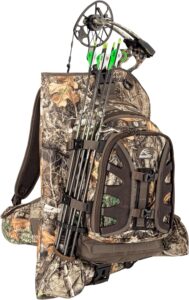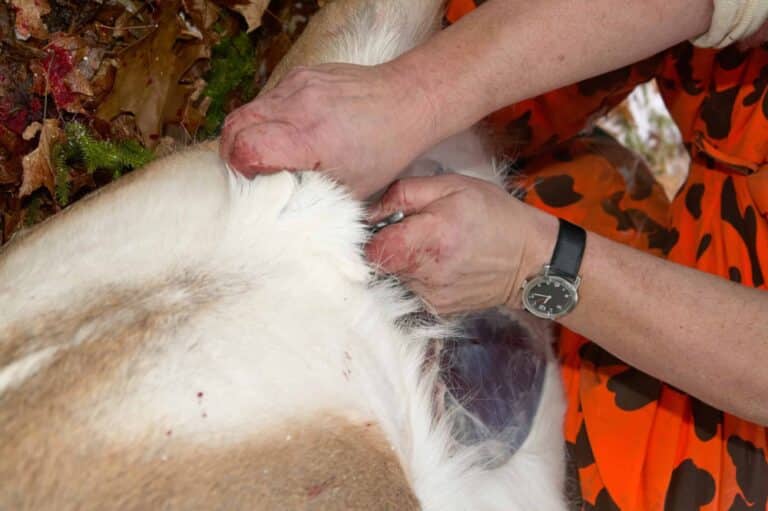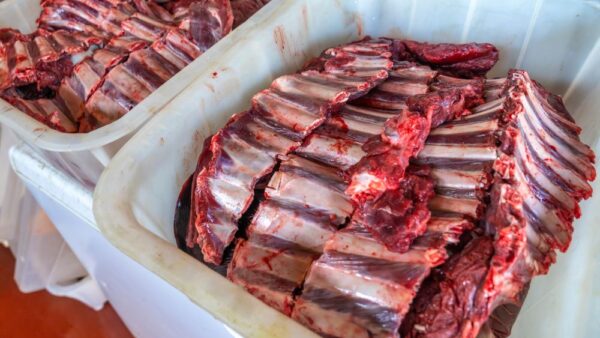Picture this: You’re deep in the woods, closing in on that trophy buck you’ve been tracking since dawn. Suddenly, you need your rangefinder, but it’s buried somewhere in your noisy, overstuffed backpack. As you fumble around, the deer catches wind of you and bolts. Sound familiar? We’ve all been there. That’s why you need the list for the best deer hunting backpacks in 2024.
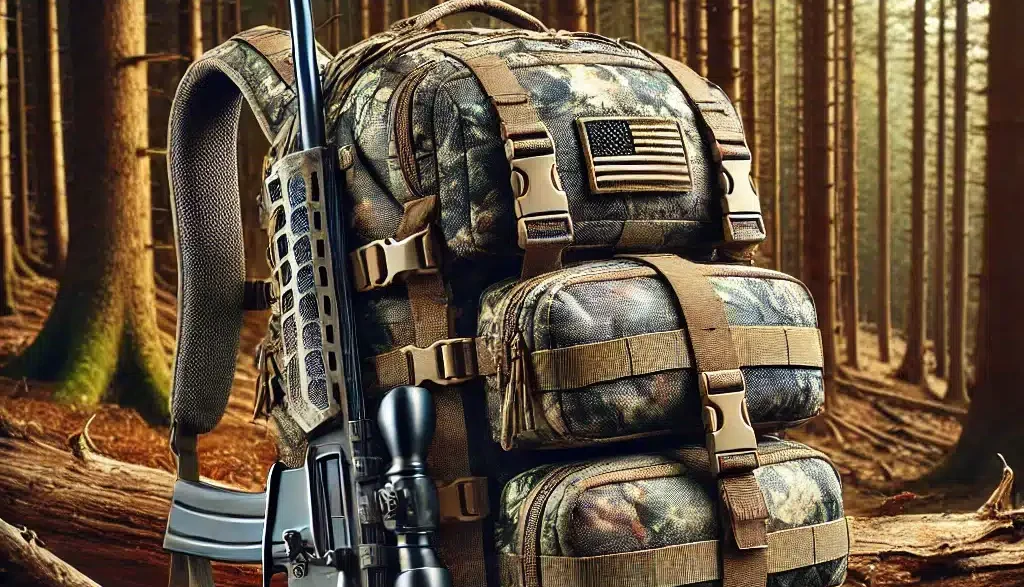
Hey there, fellow deer hunters! Whether you’re a seasoned pro or just starting out, we all know that having the right gear can make or break a hunting trip. And let’s face it, your backpack is like your trusty sidekick in the woods – it carries all your essentials and keeps you ready for whatever nature throws your way.
But here’s the thing: not all hunting backpacks are created equal. The wrong pack can leave you sore, frustrated, and even cost you that perfect shot. That’s why we’ve put together this guide to help you find the best deer hunting backpack for your needs.
In this post, we’ll walk you through everything you need to know about choosing the perfect hunting pack. We’ll cover what features to look for, share our top picks for different situations, and even throw in some packing tips from experienced hunters.
By the time you’re done reading, you’ll be all set to pick a backpack that’ll serve you well on your next deer hunting adventure. So, grab your favorite hunting snack, settle in, and let’s dive into the world of deer hunting backpacks. Trust us, your back (and future self in the field) will thank you!
What to Look for in a Deer Hunting Backpack
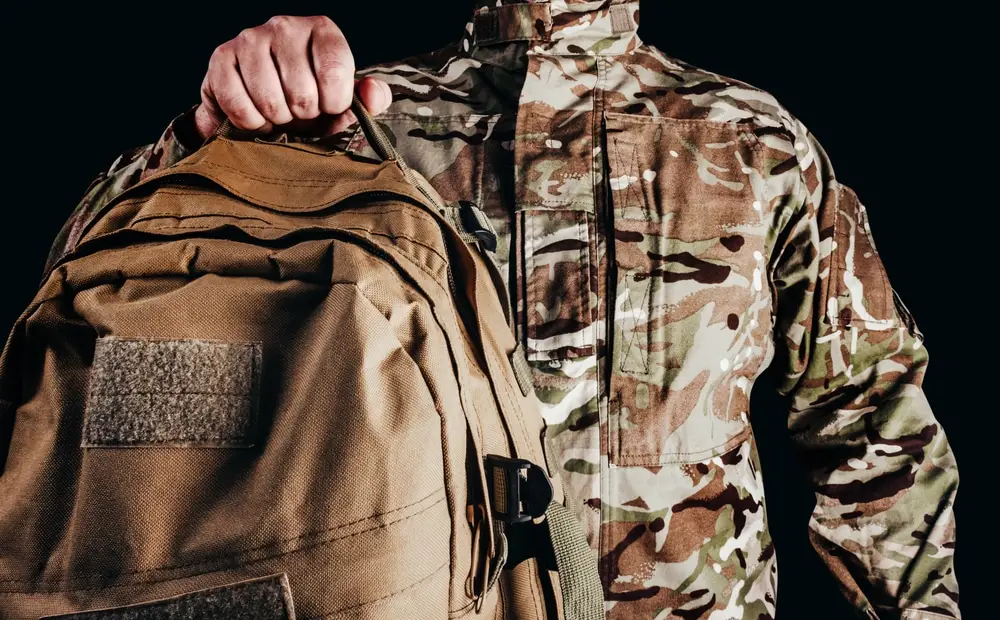
Alright, hunters, let’s discuss what makes a great deer-hunting backpack. It’s not just about picking any old bag and hitting the trail. It would be best to have something that will work as hard as you do. Here are the key things to keep an eye out for:
Comfort and Fit
You know that feeling when your shoes don’t fit, right? An ill-fitting backpack is just as bad, especially when you’re lugging it around all day. Look for a pack with padded shoulder straps and a waist belt. These help spread the weight evenly and keep you comfy. And if you can try it on before you buy, even better!
Durability and Weather Resistance
Mother Nature doesn’t always play nice, does she? Your pack needs to be tough enough to handle scratchy branches, accidental drops, and surprise rain showers. Water-resistant materials are a must—nobody likes soggy sandwiches or a wet extra layer of clothes.
Storage Capacity and Organization
Think about what you usually carry on a hunt. Do you pack light or like to be prepared for anything? Most hunting packs range from 1,000 to 3,000 cubic inches. But it’s not just about size – good organization is key. Look for a pack with different compartments and pockets. It’ll save you from playing that annoying “Where did I put my call?” game whenever you need something.
Noise Level
Stealth is the name of the game in deer hunting. The last thing you want is a noisy backpack ruining your chances. Soft, brushed fabrics are your friend here. Avoid packs with noisy zippers or velcro-like alarm bells in the quiet woods.
Weight
Remember, you’ve got to carry this thing all day. A heavy pack will wear you out faster, and that’s no fun for anyone. Look for something lightweight, but don’t sacrifice durability. It’s all about finding that sweet spot.
Extra Features
Some packs have nifty extras like built-in hydration systems, rifle holders, or meat-hauling frames. These can be super handy, but only if you’ll use them. Don’t get suckered into paying for bells and whistles you don’t need.
Remember, the best backpack for you is the one that fits your hunting style. Think about where you hunt, how long you’re usually out, and what gear you can’t live without. Remember these points, and you’ll be well on your way to finding your perfect pack.
Next, we’ll check out top-notch backpacks that tick all these boxes. Stay tuned!
Top 5 Deer Hunting Backpacks for Different Needs
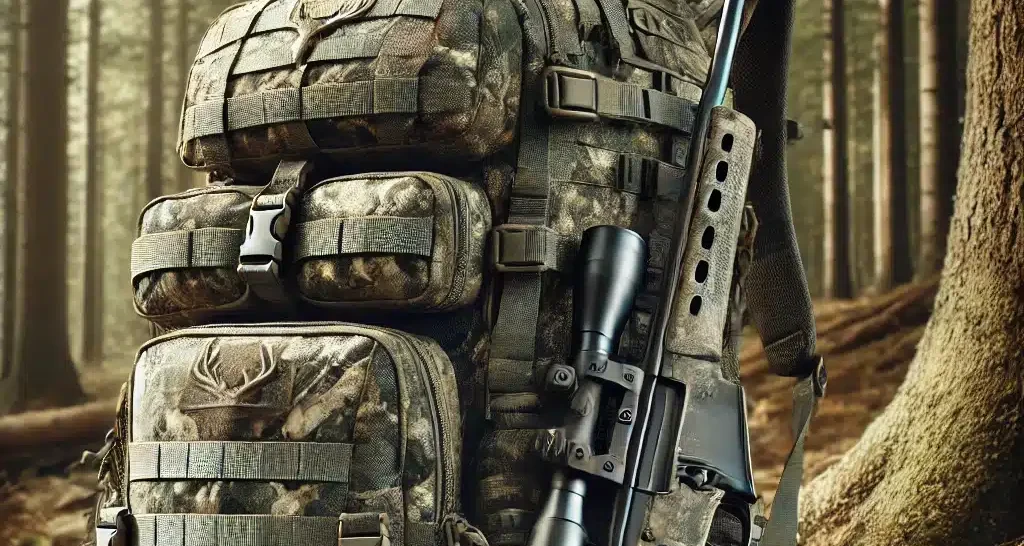
1. Badlands 2200 Hunting Backpack
- Key features: Durable construction, comfortable fit, multiple pockets for gear storage, hydration bladder compatible.
- Pros: Versatile design suitable for various hunting conditions, durable, comfortable, and spacious.
- Cons: It can be expensive.
- Price: $270
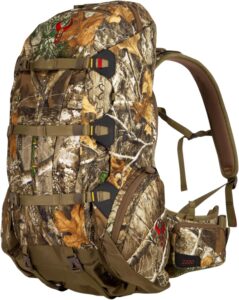
2. Eberlestock X2 Pack
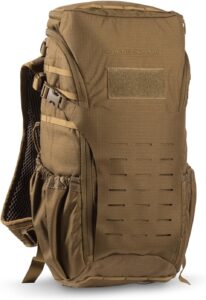
- Key features: Rugged construction, comfortable fit, multiple pockets for gear storage, compatible hydration bladder, and game shelf.
- Pros: Versatile design suitable for various hunting conditions, durable, comfortable, and spacious.
- Cons: It can be expensive.
- Price: $150
3. TIDEWE Hunting Backpack, Waterproof Camo
- Key features: Made of quiet, long-lasting, high-performance polyester. The weight is only 3.7lb.
- Pros: It’s perfect for keeping gear organized yet easily accessible. The multi-pocket design helps you keep gear separated and organized.
- Cons: Not as durable as other models
- Price: $60
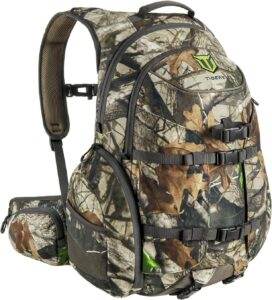
4. Mystery Ranch Metcalf 75
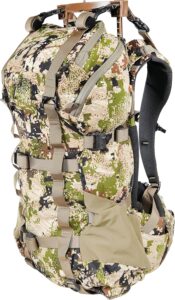
- Key features: Large capacity, comfortable fit, durable construction, multiple pockets for gear storage, and compatible hydration bladder.
- Pros: Versatile design suitable for various hunting conditions, durable, comfortable, and spacious.
- Cons: Can be expensive.
- Price: $450
5. Insights Hunting by frogg toggs
- Key features: A versatile, all-around hunting backpack ensures you’re always ready to hunt with easy access to gear.
- Pros: Extra large main compartment, wider main compartment conveniently fits long, parallel limb bows, quivers, arrows, optics, and electronics while protecting your sight, arrow rest, and d-loop
- Cons: Zippers wear out quickly.
- Price: $140
I know what you’re thinking: “These all sound great, but how do I choose?” Well, think about your typical hunting trip. Are you usually out for a few hours or a few days? Do you hunt in warm weather or cold? How much gear do you usually carry?
Remember, the best pack is the one that fits your needs. Don’t be swayed by fancy features you’ll never use. And if you can, try before you buy. A pack that looks great online might feel all wrong once you put it on.
How to Organize Your Hunting Pack
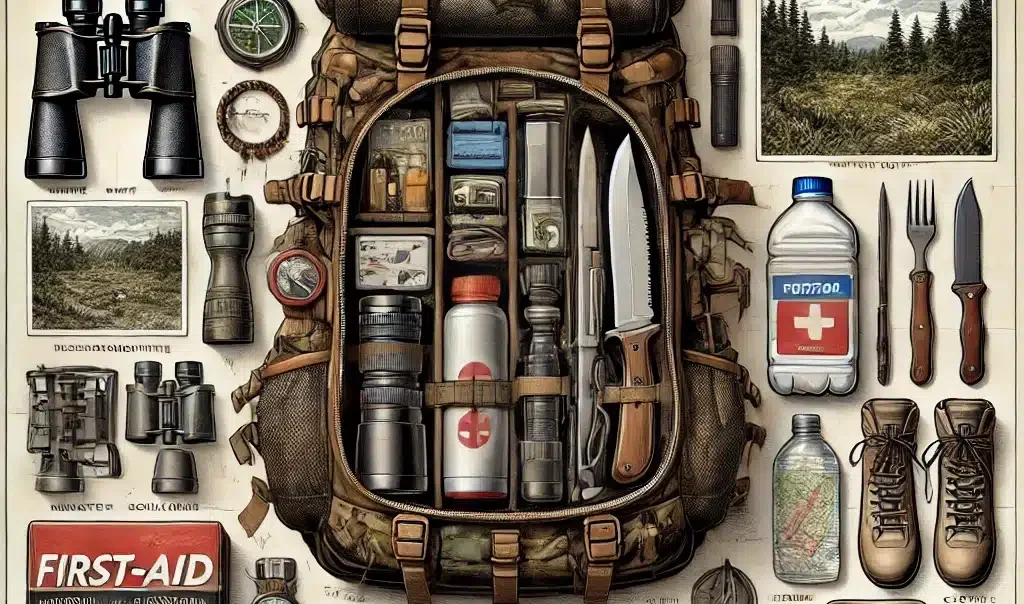
Okay, so you’ve got your shiny new hunting backpack. Now what? Packing it right can make a huge difference in your comfort and success out in the field. Let’s break it down:
Essential Items to Include: First, discuss what you must pack. Here’s a quick checklist:
- Hunting license and tags
- First aid kit (trust us, you’ll be glad you have it)
- Water and snacks (stay hydrated and energized!)
- Extra layers of clothing
- Knife and game processing gear
- Flashlight or headlamp (with extra batteries)
- Maps and compass (or GPS)
- Calls and scent attractants
- Binoculars
- Rain gear (because Mother Nature loves surprises)
Remember, this list might change depending on your hunting style and location. Always check local regulations, too – some places require you to carry specific items.
Packing Tips for Weight Distribution and Easy Access
- Heavy stuff goes close to your back, keeping the weight close to your center of gravity. You’ll feel much lighter this way.
- Pack in layers: At the bottom, put stuff you won’t need until you bag a deer (like game bags). Things you might need during the day go on top.
- Use those pockets: Most hunting packs have many pockets for a reason. Use them to organize your gear. Put small items you need often (like your calls or rangefinder) in easy-to-reach spots.
- Balance is key: Distribute weight evenly on both sides of the pack. Your back will thank you later.
- Waterproof your gear: Even if your pack is water-resistant, use plastic or dry bags for extra protection. Nothing’s worse than wet matches or soggy snacks.
- Pack a plastic garbage bag: It weighs nothing and can be useful. Use it as an emergency poncho to keep your butt dry when sitting or to pack out meat.
- Squeeze out the air: When packing clothes or soft items, squeeze out as much air as possible. This saves space and stops things from rustling around.
Remember, practice makes perfect. The more you use your pack, the better you’ll get at organizing it just right. Don’t be afraid to adjust things as you go – what works great on one hunt might need tweaking for the next.
Here’s a pro tip: Pack your backpack the night before your hunt. There’s nothing worse than forgetting something important because you were in a rush in the early morning darkness.
Caring for Your Hunting Backpack
Alright, hunters, listen up! Your backpack works hard for you in the woods, so it’s only fair to give it some TLC. Taking good care of your pack will keep it in shape for years. Here’s how:
Cleaning and Maintenance Tips
- Empty it: Take everything out of your pack after each hunt. You’d be surprised what can hide in those little pockets!
- Shake it off: Give your pack a good shake outside to remove dirt, leaves, and any hitchhiking critters.
- Spot clean: Wipe down the outside of your pack with a damp cloth. For tougher stains, use a soft brush and mild soap. A little dirt gives it character.
- Check the zippers. Dirt can build up on zippers. Clean them with an old toothbrush and apply a little zipper lubricant to keep them running smoothly.
- Wash it (sometimes): If your pack is dirty or smelly, you might need to wash it. Most packs can be hand-washed in cool water with mild soap. Just be sure to rinse it well.
- Air dry: Never put your pack in the dryer. Hang it up and let it air dry completely before storing.
- Inspect and repair: Look for any tears, loose stitching, or broken buckles. Small repairs now can prevent big problems later.
Storage Advice Between Hunting Seasons
- Clean and dry: Before you store your pack, make sure it is clean and completely dry. Moisture is the enemy here!
- Stuff it lightly: Put some crumpled paper inside to help the pack keep its shape.
- Cool and dry: Store your pack in a cool, dry place. Avoid damp basements or hot attics.
- Hang it up: If possible, hang your pack rather than squishing it in a box. This helps it keep its shape.
- Rodent-proof: Store your pack in a sealed plastic bin or hang it high. Mice love to chew on backpacks!
- No direct sunlight: Keeping your pack out of direct sunlight will prevent fading and fabric breakdown.
- Leave it open: Don’t zip it up tight for storage. Leaving the zippers partially open allows air to circulate.
Remember, a little bit of maintenance goes a long way. Your backpack is an investment in your hunting success, so treat it right!
Next, we’ll hear stories from fellow hunters about how the right backpack made a difference in their hunts. These tales from the field might teach us a thing or two!
Real Stories from Fellow Hunters
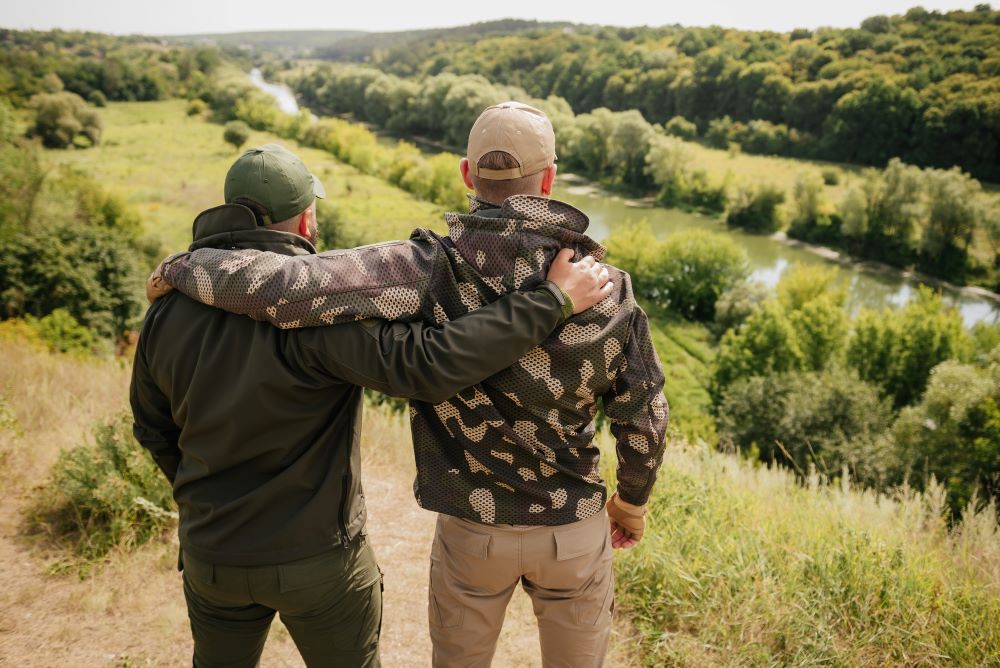
There’s nothing quite like learning from the experiences of other hunters. We’ve gathered some real-life stories that show just how important the right backpack can be. Let’s dive in!
The Ultralight Convert: Mike from Michigan shares: “I used to pack everything but the kitchen sink on my hunts. My old backpack weighed a ton, and by midday, I was more focused on my aching shoulders than hunting. Last season, I switched to a lightweight pack and thought about what I needed. It was a game-changer! I moved quieter, faster, and had more energy. I ended up bagging the biggest buck of my life. Sometimes, less really is more.”
The Organizational Genius: Sarah from Texas says, “I’m all about staying organized. My new pack has a spot for everything – calls in one pocket, first aid in another, snacks within easy reach. No more digging around making noise! Last fall, I could grab my grunt call quickly when a nice 8-pointer appeared. That buck is on my wall now, thanks partly to my well-organized pack.”
The All-Weather Warrior: Tom from Washington recounts, “Hunting in the Pacific Northwest, you’ve got to be ready for rain. I learned that the hard way when my old pack soaked through, leaving me with wet gear and a miserable hunt. I invested in a waterproof pack last year, and wow, what a difference! I got caught in a downpour, but my extra clothes and gear stayed dry. I was able to stick it out and ended up taking a nice doe that evening.”
The Long-Haul Hero: Jake from Colorado shares: “I do a lot of backcountry hunting, often staying out for days. My pack needs to carry everything and be comfortable. Found a great pack with a built-in frame last season. When I got my elk, I packed a lot of meat in one trip. It was tough, but the pack distributed the weight so well. I wouldn’t have made it with my old setup.”
The Budget Hunter: Lisa from Kentucky tells us, “I’m pretty new to hunting and didn’t want to spend a fortune on gear. I found a good, basic hunting backpack on sale. It’s not fancy, but it does the job. I took my first deer last season, and that pack helped me carry all my essentials. You don’t always need the most expensive gear to be successful!”
These stories show that the right backpack can make a real difference in your hunting experience. Whether you must stay organized and dry, carry heavy loads, or find something that fits your budget, the right pack can help you stay comfortable and focused on the hunt.
Remember, every hunter’s needs are different. What works for one might not work for another. The key is finding what suits your hunting style and your conditions.
Conclusion
Well, fellow hunters, we’ve tracked our way through the world of deer hunting backpacks. Let’s take a moment to reflect on what we’ve learned.
We started by looking at what makes a great hunting backpack – comfort, durability, storage, noise level, and weight. Remember, it’s not about finding the fanciest pack out there but the one that fits your hunting style like a glove.
We explored some top picks for different needs and budgets. Whether you’re a weekend warrior or a backcountry expert, there’s a pack out there for you. Remember that the best pack is the one that feels right on your shoulders and meets your specific needs.
We also covered the art of packing your backpack. It’s not just about cramming everything in—smart packing can make your hunt more comfortable and successful. Keep heavy items close to your back and essentials within easy reach, and always be prepared for whatever Mother Nature might throw at you.
Don’t forget to take care of your pack. A little maintenance goes a long way in extending its life. Clean it, store it properly, and it’ll be ready to accompany you on hunts for years to come.
And those real-life stories? They show us that the right backpack can indeed make a difference. From helping hunters stay organized and dry to making it possible to pack out that trophy, a good backpack is more than just a gear carrier – it’s your silent hunting partner.
So, consider your backpack as you gear up for your next deer hunting adventure. It might just be the unsung hero of your hunt. Choose wisely, pack smart, and who knows? Your next big buck might be around the corner, and you’ll be ready.
Remember, at the end of the day, the most important thing is to enjoy your time in the great outdoors. A good backpack helps you stay comfortable, prepared, and focused on the hunt.
Happy hunting, everyone! May your aim be true; your backpack always has room for one more snack. See you in the woods!

